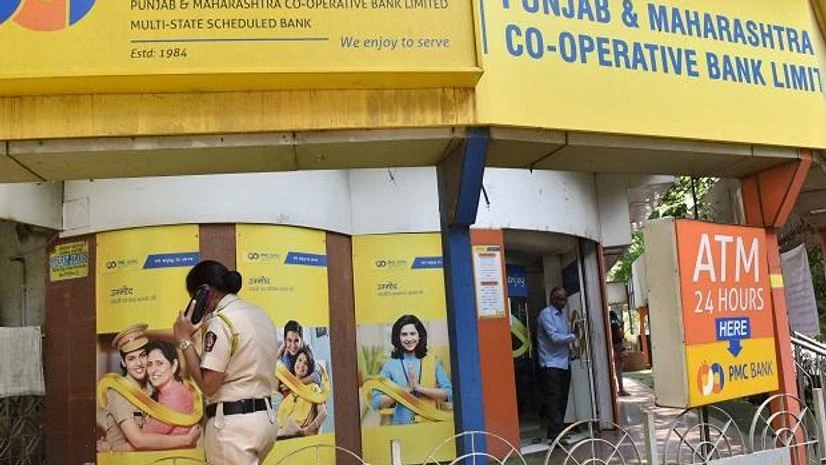The now-suspended managing director of the crisis-hit Punjab and Maharashtra Cooperative Bank (PMC), Joy Thomas, has reportedly admitted to the RBI that the bank's actual exposure to the bankrupt HDIL is over Rs 6,500 crore -- four times the regulatory cap or a whopping 73 per cent of its entire assets of Rs 8,880 crore.
The admission came in after a board member leaked the actual balancesheet details to the Reserve Bank, a source in know of the details said.
The slum redevelopment focused Housing Development and Infrastructure or HDIL is in the bankruptcy court now after being hit by a severe cash crunch following the failure of some of its key projects in the city.
While HDIL did not reply to a detailed e-mail sent by PTI on the issue, the bank, its chairman Waryam Singh and Joy Thomas could not be reached for comments immediately.
The source told PTI that non-disclosure of the actual HDIL status (NPA since the past two-three years) and the quantum of the exposure to the group was leaked by one of the PMC board members himself to the Reserve Bank, forcing Joy Thomas to confess the misreporting.
Also Read
According to the source, Thomas wrote a four-and-a-half page detailed letter to the regulator giving details of how he, along with six key people who include a few board members, including chairman Waryam Singh and one or two senior bank officials, were sanctioning loans to the HDIL Group.
The source further said Thomas has also confessed that most of the board members were in the dark about these loans.
Waryam Singh was on the board of HDIL for nine years between 2006 and 2015 and had held 1.91 per cent stake in the company during this period. He ceased to be a non-executive director of the company in March 2015. Before he exited the HDIL board, Singh had sold his entire stake in the company.
"The whistleblower board member approached the regulator and provided information about financial irregularities and the real estate company's loans not being classified as non-performing loans from last two-three years, despite defaults on repayments," the source told PTI.
"This forced Thomas to go the RBI. In a four-and-a-half page letter, he confessed the wrongdoings and evergreening of some other key accounts," he added.
The loans were sanctioned to the realty developer since 2008, the source said.
"Thomas in the letter admitted that the exposure to HDIL Group was over Rs 6,500 crore, which is nearly 73 per cent of its total loan book of Rs 8,880 crore as of September 19, 2019," the source said.
As per regulations, single entity exposure limit for banks is 15 per cent of their capital fund. For group companies, the exposure limit is 20 per cent. Thus, PMC's exposure to HDIL is almost four-times of what RBI mandates.
Thomas, in a press conference last week, had said the bank's exposure to HDIL and its related entities was to the tune of Rs 2,500 crore and that there was delay in repayments by the group since the last two-three years.
In the confession letter, Thomas also put the actual NPA number at 60-70 per cent as against a reported net NPA of 2.19 per cent as of March 31, 2019, the source said.
Though the RBI is still inspecting the bank's balancesheet, if the NPA numbers turn out to be as per Thomas' confession, it will be the highest in the banking industry so far.
On September 19, Thomas met RBI Executive Director Rabi Mishra and sought time to resolve the issue, citing HDIL was in advanced stages of selling some of its real estate assets.
The money from the asset sale could have helped HDIL repay at least the interest part and make its account with PMC standard, Thomas had informed the RBI.
The regulator sent the inspection team to the bank's headquarters in suburban Mumbai on the evening of September 19 itself.
During the inspection, RBI found major financial irregularities, under-reporting of exposure and failure of internal controls and systems.
On September 23 evening, the RBI had put a slew of restrictions on the bank for six months. The restrictions included curbs on fresh lending, accepting fresh deposits and investments, among others.
The withdrawal limit for account holders was also kept at Rs 1,000 for six months, which was later raised to Rs 10,000.
The regulator also dismissed the board and suspended Thomas. It appointed J B Bhoria as the administrator at the bank.

)
